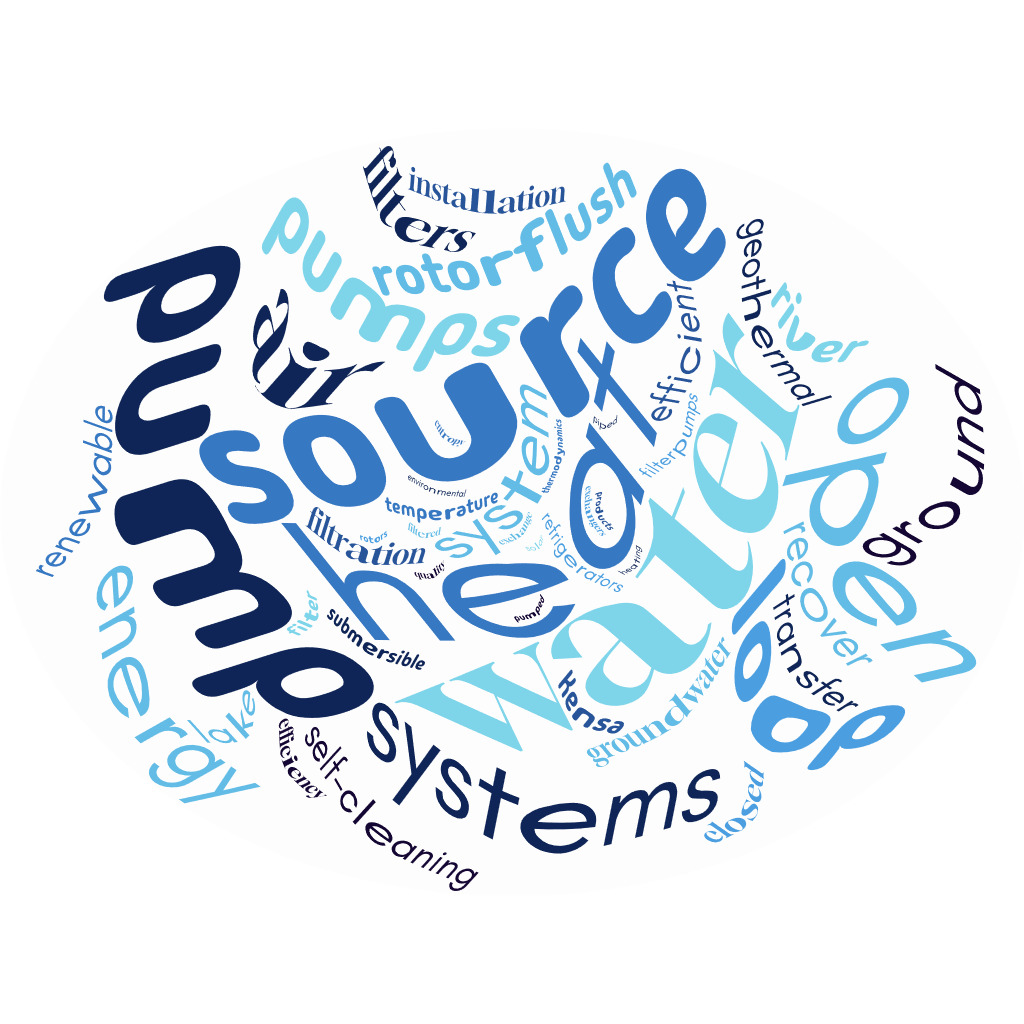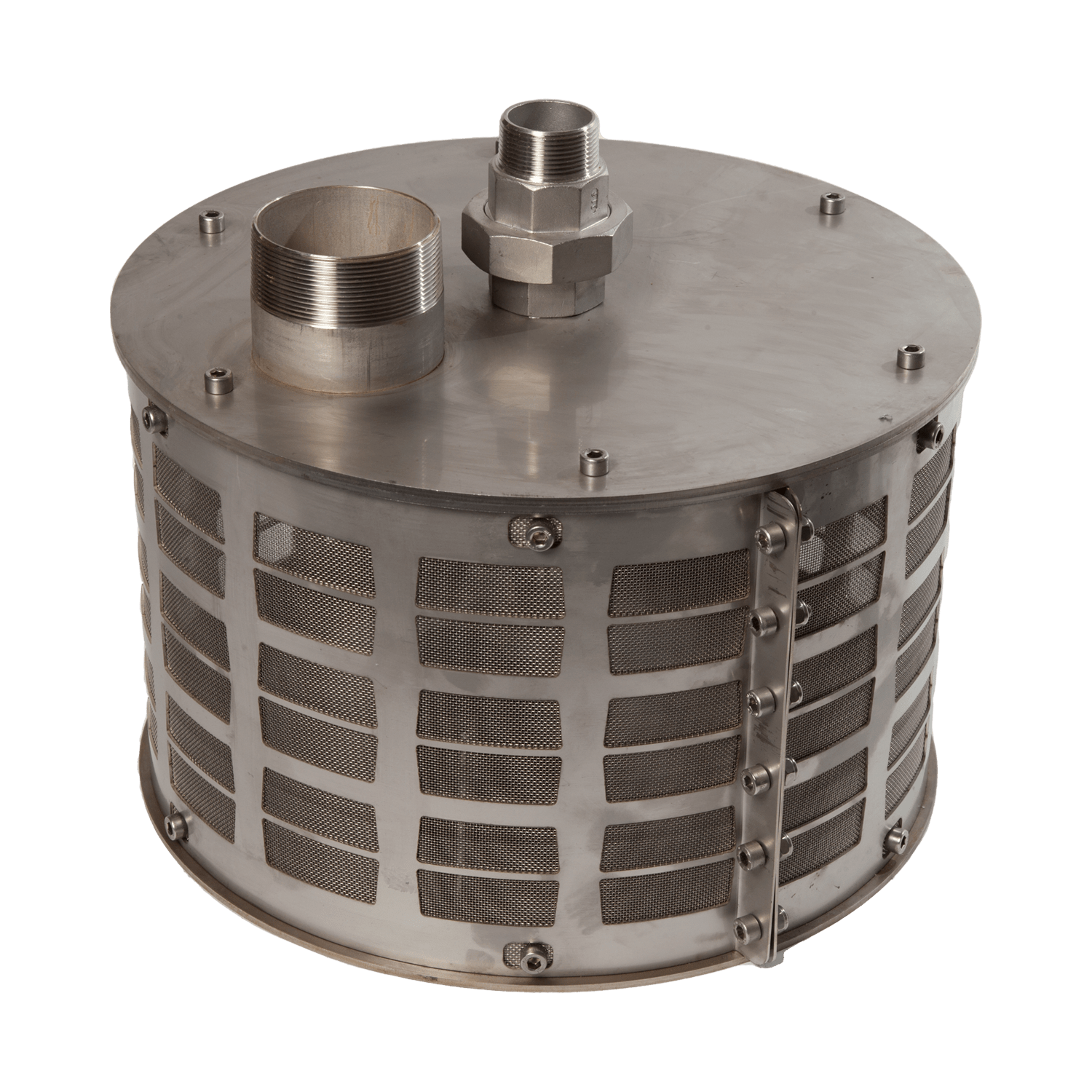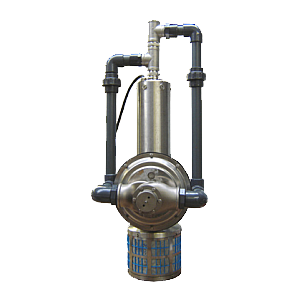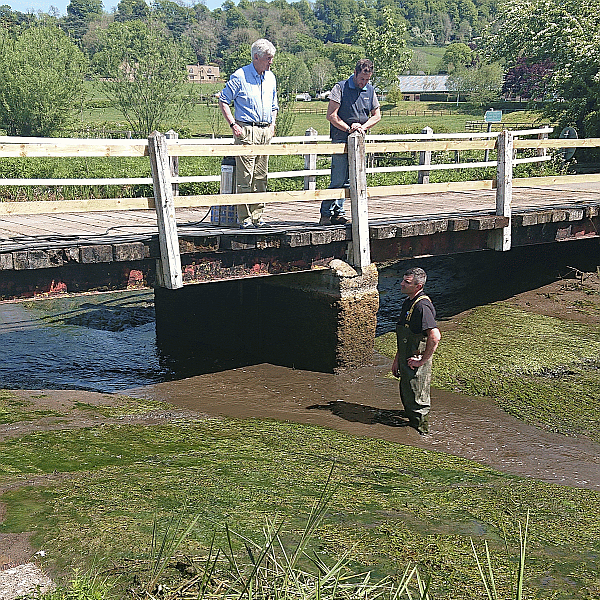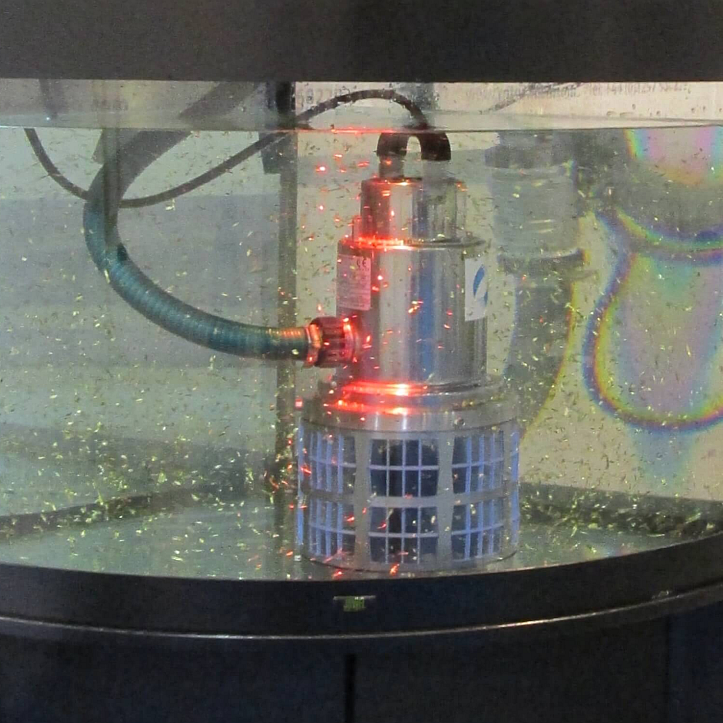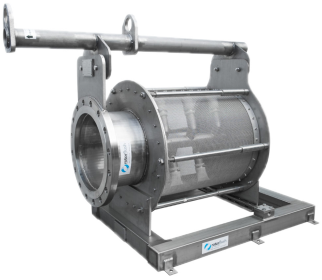How Open Loop Heat Pump Systems Work
Heat Pump Filters
Open Loop Water Source Heat Pump Systems
In the drive to reduce carbon emissions, the world has seen a proliferation of renewable technologies. Here at Rotorflush Filters Ltd, we have seen an increase in enquiries for the use of our products with heat pumps – particularly for use with open loop water source heat pump systems, also called water to water heat pump systems.
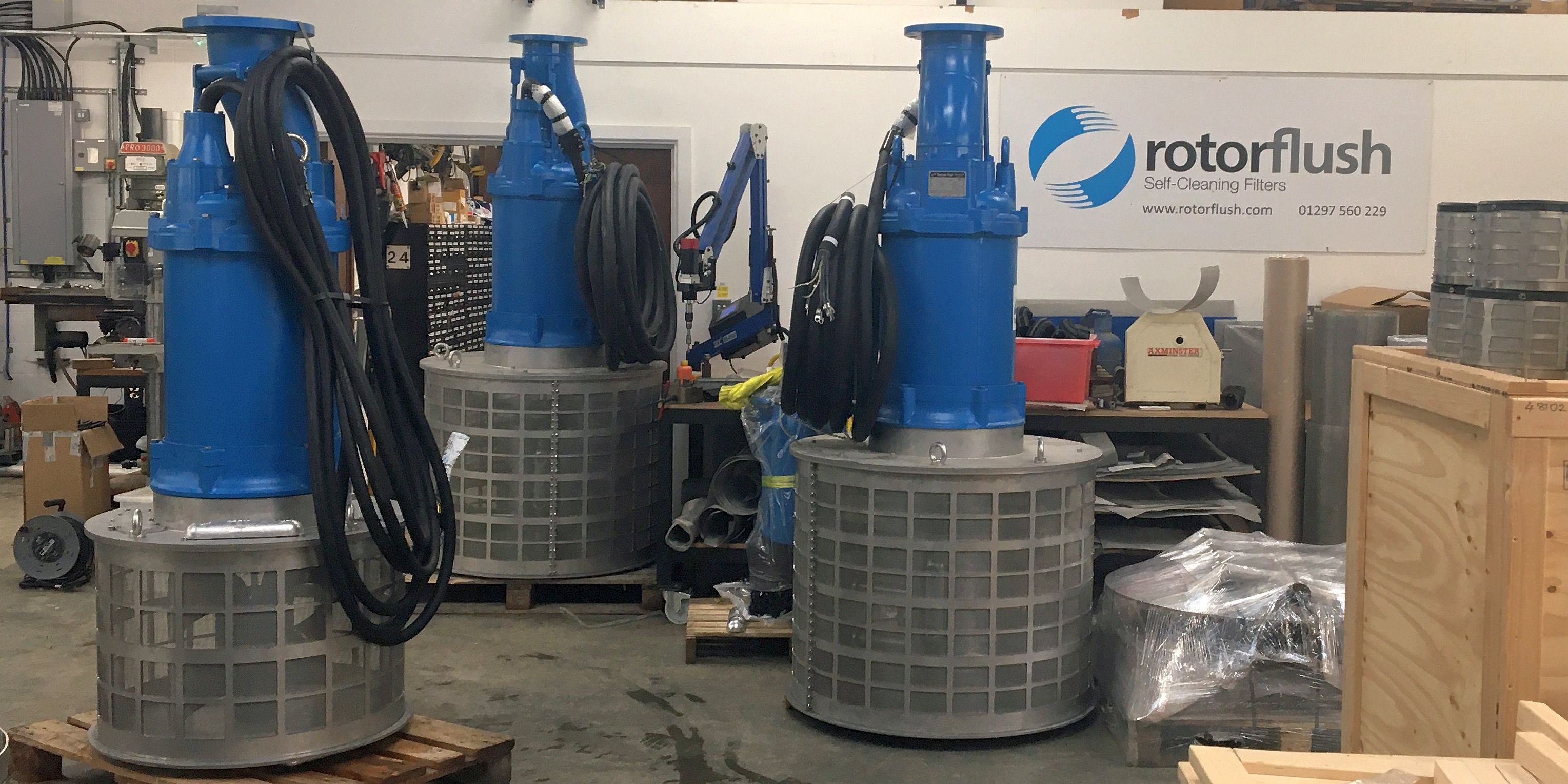
What Are Heat Pumps and Water to Water Heat Pump Systems?
What Are Heat Pumps and Heat Pump Systems?
Heat pump systems work by recovering heat (solar energy) stored naturally in the air, ground or water and using this recovered heat as a source of energy to heat homes and businesses. Air source systems recover ambient heat from the air, ground source heat pump systems recover heat from the ground. Geothermal systems recover heat from groundwater.
‘Water source heat pump’ refers to a heat pump used in any system that recovers heat from water. This may be closed – as in many geothermal heat pump systems that recover heat from groundwater, or open loop systems which take water from open water – a lake or river or the ocean - and pump it through the system to recover the heat and return the water to source. Hence, they are sometimes referred to as water-to-water heat pumps.
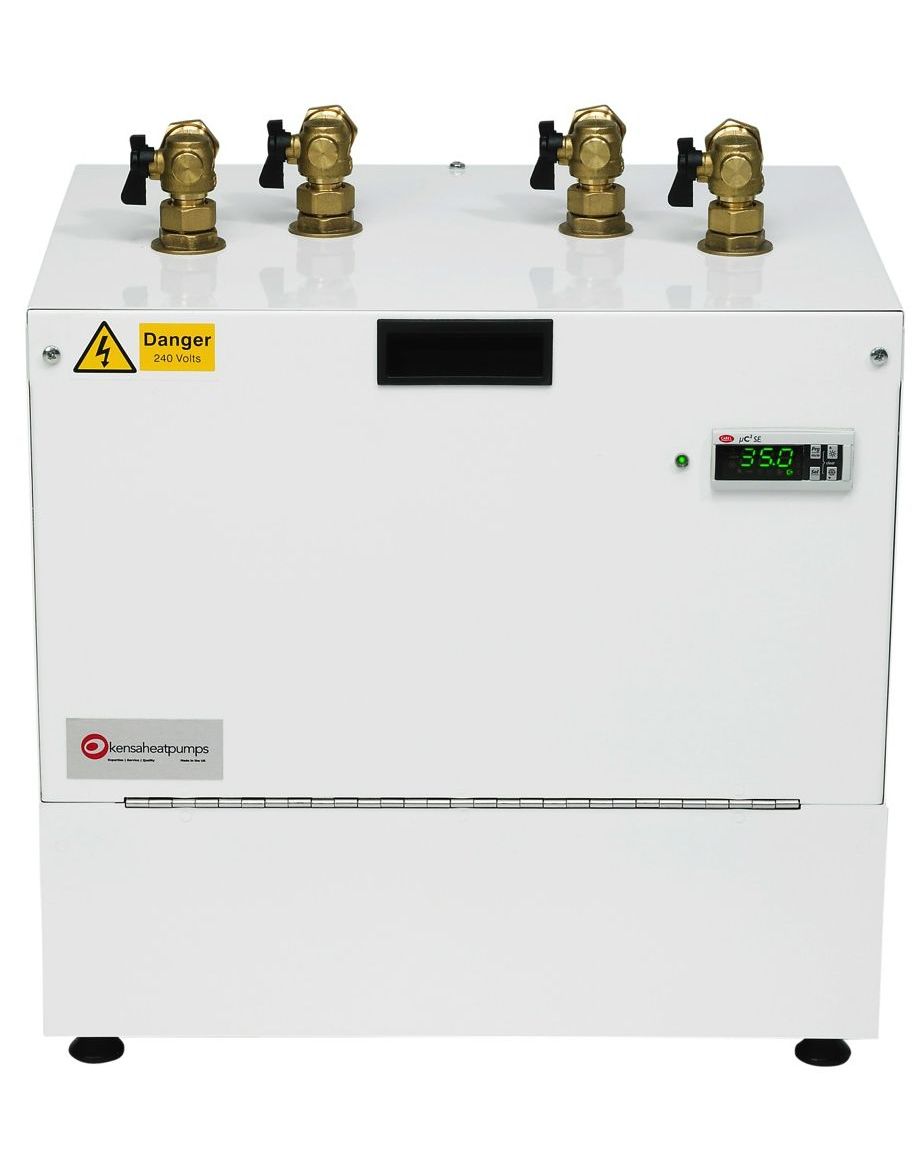
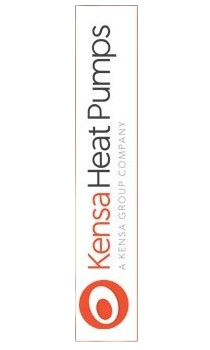
What is an Open Loop Water Source Heat Pump System?
Open Water to Water Heat Pump Systems
In a closed loop heat exchange system a liquid medium is circulated in a piped system through water, or underground capturing the latent heat in the water or ground. This liquid stays in the system, which is closed.
In open loop water source heat pump systems, water - such as a lake, river, pond or the sea - is the heat source. This water is passed through the open system, exchanging its heat before being discharged back to source. The water passes through a heat pump or heat pumps to transfer its heat before being returned to the sea or river or lake.
Open loop geothermal heat pumps are drawing heat from groundwater, usually from a well; our filters and filterpumps™ require good clearance all round and are not suitable for use in wells.
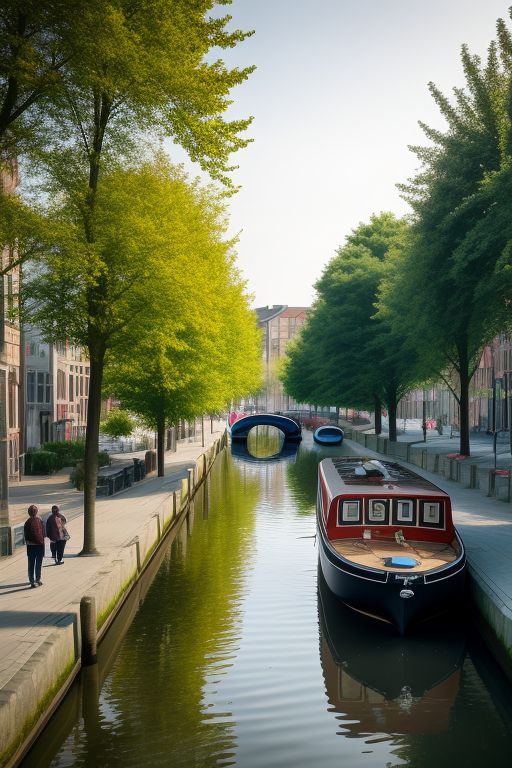
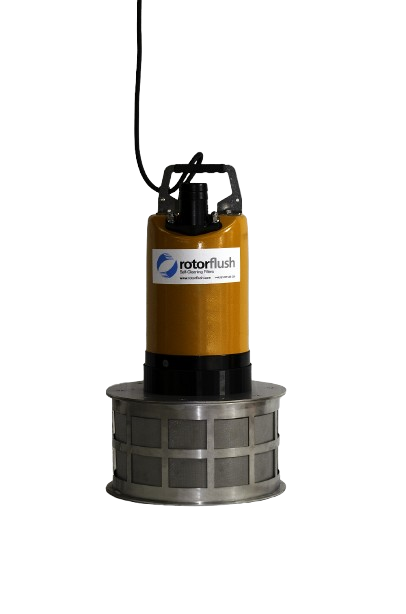
How Does a Water Source Heat Pump Work?
Water has a greater capacity to retain heat than air, and it is better at transferring heat in plate heat exchangers. Air systems are at their least efficient on the coldest days when they are most needed, whereas river and lake water is a more efficient store of heat, retaining energy from the sun that has built up in the preceding months.
The open loop heating system diagram below shows how a water source heat pump works. Heat pumps work on the same principle as refrigerators – refrigerators, heat pumps and air conditioners use the Second Law of Thermodynamics to transfer heat from a cooler area to a warmer one. This law states that in any energy transfer or transformation, the total entropy of a system and its surroundings always increases.
This principle is crucial because it explains why certain processes, like heat flowing from a hot object to a cold one, are irreversible. Water based heat pump systems are more energy efficient than air source systems.
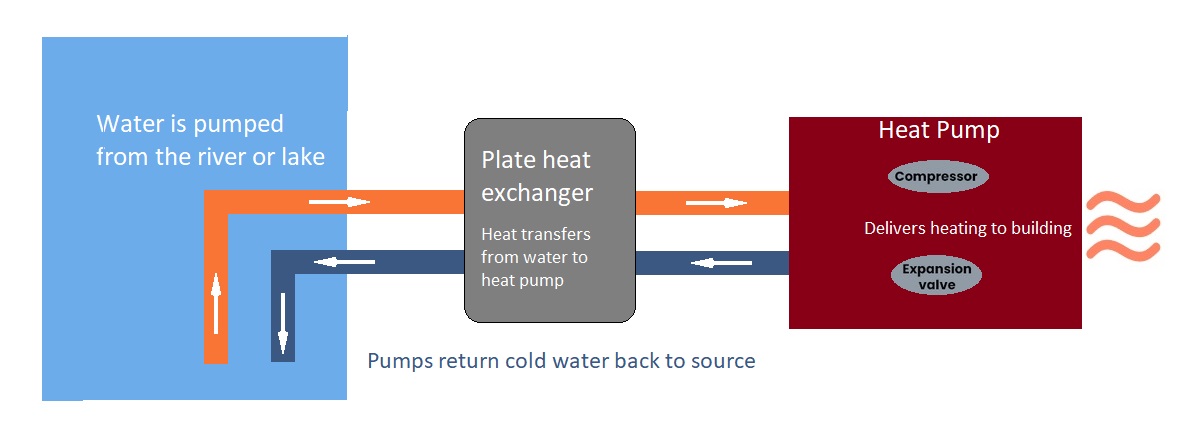
Open Loop Heating System Diagram
How Filters and Screens Can Protect Water Source Heat Pump Systems.
Heat pump installers and manufacturers are recognising the benefits of Rotorflush submersible pumps for supplying their equipment.
Our low head energy efficient pumps with built-in self-cleaning suction intakes allow river and other open water to be filtered pumped through plate heat exchanges.
The self-cleaning filters prevent weed and other debris from entering the system, and the self-cleaning rotors keep the filter clear.
They offer a low maintenance solution to supplying open loop water source heat pumps where the water quality may be variable.
Open loop geothermal heat pumps are drawing heat from groundwater, usually from a well; our filterpumps require good clearance all round and are not suitable for use in wells.
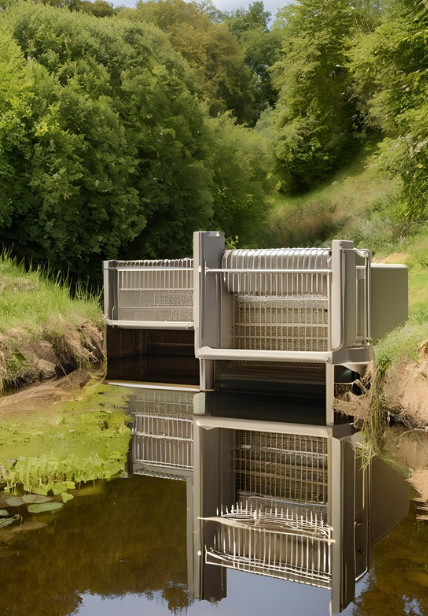
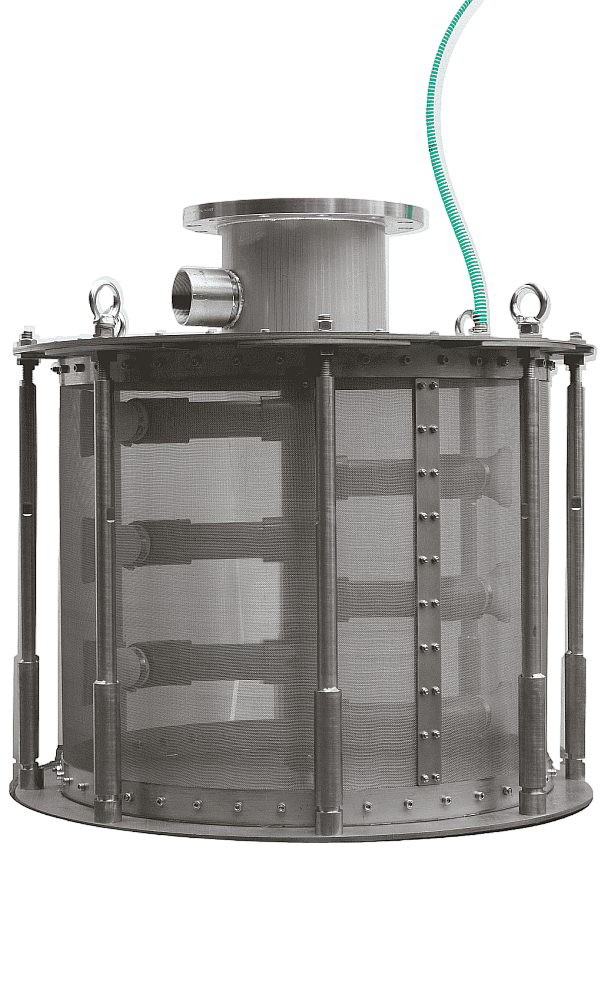
"“Using water as your energy source has a number of advantages when compared to air or ground source: The heat transfer rate from water is far higher than that in the ground or air. The flow/circulation of the water source provides constant energy replacement. The use of a water source removes the need of digging large trenches, often reducing the cost of installation compared to a ground source. The return temperature to the heat pump is usually higher than either the ground or winter average air, increasing the CoP (coefficient of performance) of the heat pump.”"
John Barker-Brown, Special Projects Manager
British heat pump manufacturer Kensa Heat Pumps Ltd
Why are Open Loop Systems Becoming More popular?
The UK and other countries are seeking to reduce their output of greenhouse gases by the increased use of renewable energy and low energy systems. Given the potential greater energy efficiencies of open loop water source heat systems over air source, there is a push to take advantage of this where geography and situation allow.
In the UK, the Renewable Heat Incentive (the RHI) provided an incentive for installing heat pump systems. RHI is a payment system for the generation of heat from renewable energy sources, introduced in the United Kingdom on 28 November 2011. It applied to industrial and domestic installations.
The Dept for Energy and Climate Change (DECC) recognises that there is huge scope for open loop water source heat pump systems within the UK and has published a map identifying the 40 urban areas that can immediately benefit from the adoption of these systems.
The use of Rotorflush filter pumps has greatly increased the feasibility of low maintenance open loop water source heat pump installations.
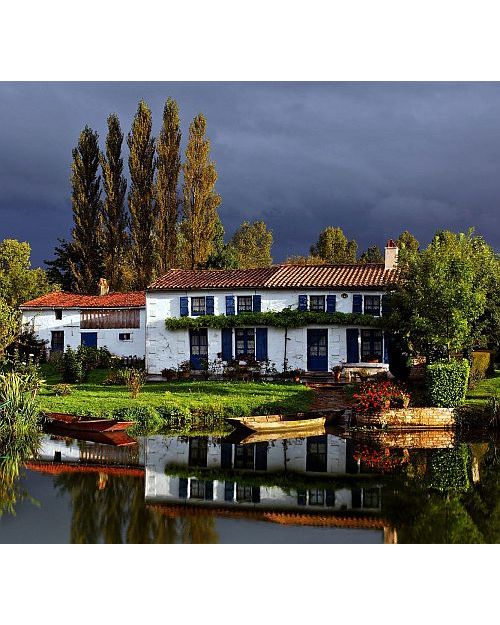
What to Consider when Planning an Open Loop Water Source Heat Pump System
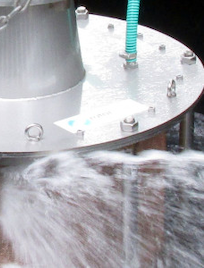
Installation
Open loop systems can be cheaper to install than digging trenches if a readily available source of water is used.
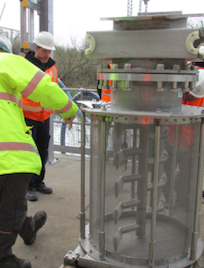
Efficiency
Open loop systems can have a higher efficiency than ground source due to the higher water source temperature.
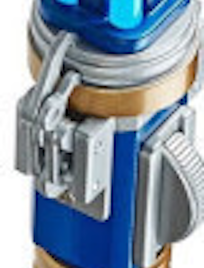
Licences
When extracting or drilling boreholes for extraction, the Environmental Agency needs to be consulted for the appropriate licences. Have a look HERE for how licensing may apply to you.
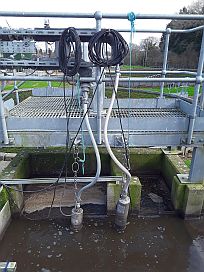
Filtration
With open loop water source heat pump systems there is a requirement for filtration and additional maintenance issues which must be addressed. HERE is where Rotorflush Filters can help.
What Do I Need to Know to Choose an Intake Pump and Filter for my Water Source Heat Pump System?
Your heat pump system will be rated for a particular energy output, which determines the heat pump capacity required to meet this specification.
The flow rate you require will be an attribute of the heat pump.
The water you need to pump to your heating system will need to be delivered at a pressure that will allow the correct volume of water to flow through the system.
Pressure can be lost through pipework, the height from the water source to heat pump, and the manufacturer's stated pressure loss through the heat exchanger in your system. The pressure you need can be expressed in metres, bar or psi.
The pressure loss through pipework can be calculated, providing you know:
- the inside diameter of your delivery pipe
- the length of the delivery pipe
- how many right angle bends there are
An online pressure drop calculator such as http://www.pressure-drop.online/ will help.
Pipework pressure loss needs to be added to the height from the water source to heat pump, plus the pressure loss through the heat pump according to the manufacturer.
This will give you a value for Total Head, or the pressure loss through the system.
For water source open loop heat pump systems, a pump is required to pump water through the system.
The pump you need, which could be a surface-mounted pump or a submersible pump, will need to be able to deliver the flow rate the system requires at the total pressure the system requires. These two values will determine the most efficient pump for the system.
A submersible pump with a self-cleaning intake filter is a very good choice, because it will screen out any debris that might clog your heat pump system, while simultaneously maintaining the flow of water you need.
Open loop water source heat pump systems need some protection to prevent blockages in the pump, system pipework and heat exchangers.
A simple basket type strainer may be sufficient for screening out larger debris in a flowing water source.
In still or v slow moving water, and with a fine mesh, the strainer will rapidly block and starve the water-to-water heat pump system. Finer mesh may be required either because the apertures through the heat exchanger are very small and prone to clogging, or because there may be restrictions on water abstraction - for example a minimum mesh size to comply with environmental regulations for eel and fish protection.
The answer is to use a self-cleaning water intake, as incorporated in a submersible Rotorflush Filterpump™ or use a Rotorflush self-cleaning suction intake filter on the suction hose of a surface mounted pump.
A self-cleaning intake screening to 315 microns will protect most water source heat pump systems and greatly reduce the burden on any secondary filters down the line.
Self-cleaning Filtration from Rotorflush Filters Ltd

Mixed Self-Cleaning Filtration Products for Cooling Water And Water Source Heat Pump Intakes
Find out more or contact us today!
Much more information about heat pumps and heat pump installations can be found at Kensa Heat Pumps who have provided much of the information on this page.
For more information about how Rotorflush Submersible Pumps with their unique and patented self-cleaning intake filters can protect your open loop water source heat pump installation, contact the Rotorflush team
